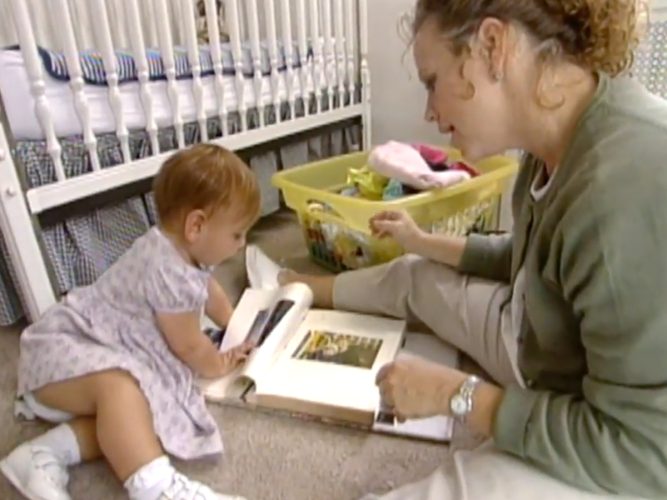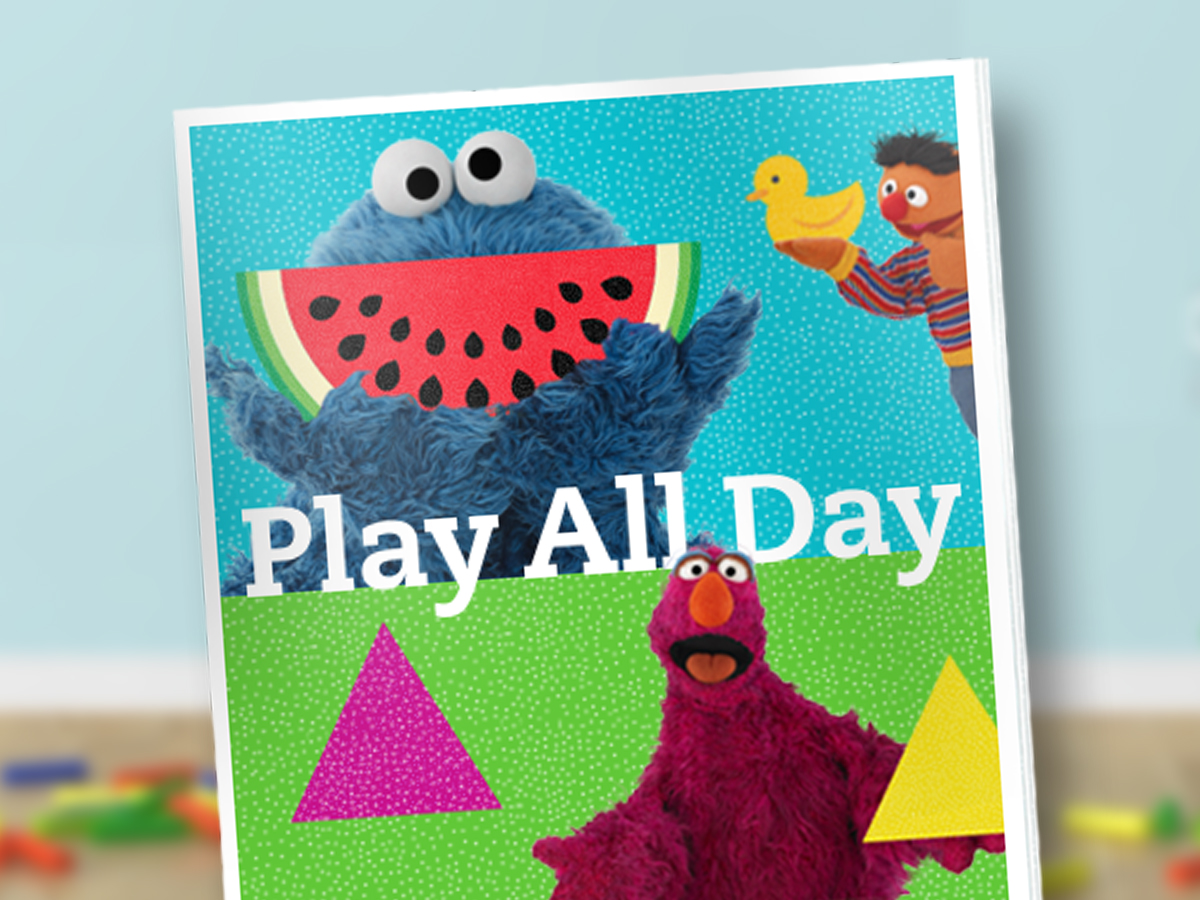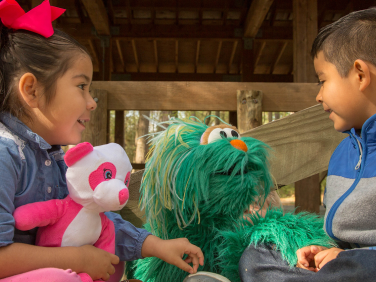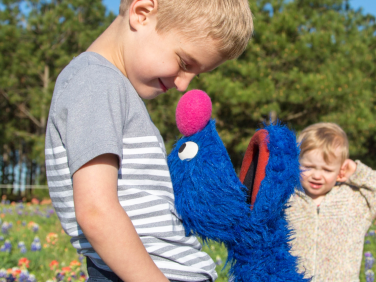
Parenting
Tips for taking care of children’s needs—through the ups, the downs, the big learning moments, and all the little discoveries.
Elmo and His Parents Learn About Patience On Busy Days
Parenting is hard work, but you’ve got this! There are many ways we can find balance between responsibility and play.
Parenting Subtopics
Dive deeper to learn more about this topic.

Learning Through Routines
Ordinary moments such as getting dressed, preparing meals, cleaning up, or bedtime offer opportunities to build math, language, and other skills that prepare kids for school.

Childhood Milestones
So much brain development happens in the earliest years of life, and little ones thrive when they have lots of nurturing interactions with caring adults.

Self-Care
You are the most important factor in your child’s growth and development. When you’re at your best, you’ll be better able to help your little one to learn, grow, and thrive.

Learning Through Play
Did you know there is a relationship between play and learning? Children love to play and, as they do, they’re exploring the world around them, building self-confidence, and practicing important skills crucial to brain development.

Childcare
Parents and caregivers can work together to enrich everyday moments and make caring for little ones exciting, educational, and safe.
Everyday moments and routines are filled with wonderful opportunities to build children’s brains.
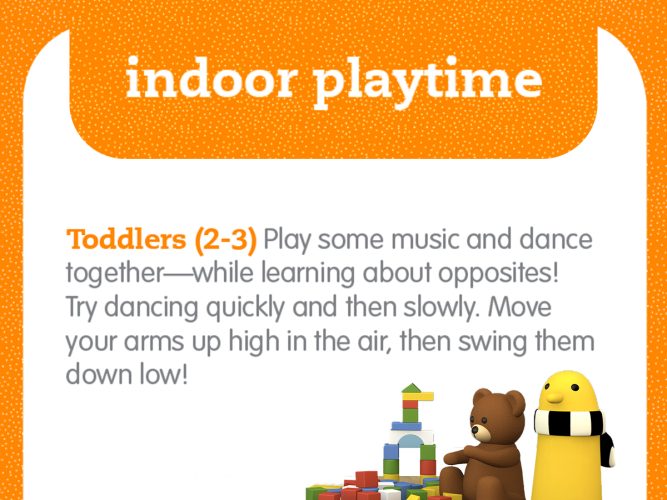
Everyday Moments Activity Cards
Explore the everyday moments and routines that build kids’ brains.
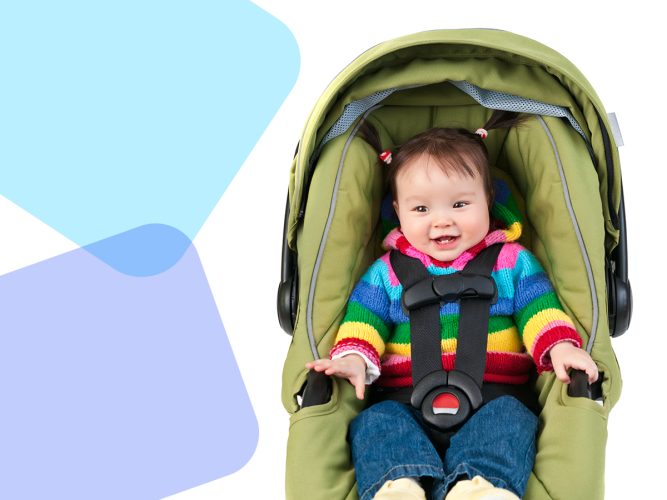
Safety Counts!
As children explore, it’s key for them to be in safe spaces.
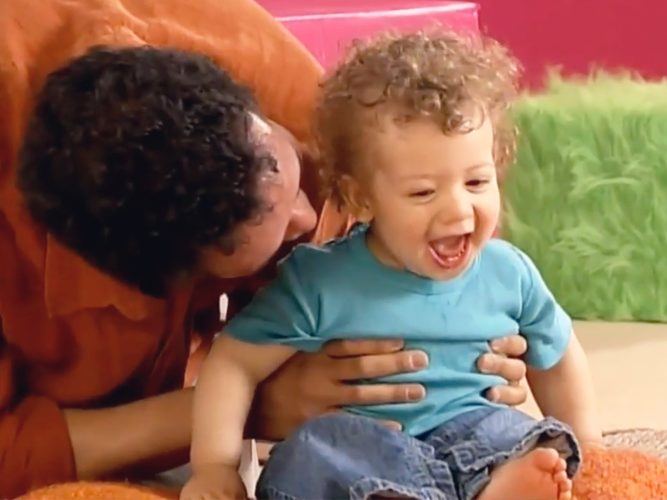
Exploring and Learning
Exploring the world around them helps kids learn new skills.

Talking with Kids About Feelings
Social-emotional learning can be part of your everyday activities!

Seven Simple Routines
Having similar routines at home and in childcare can help children transition between people and places.
Celebrating all that we’ve accomplished together and sharing words of encouragement with kids can help us all feel thankful and proud.
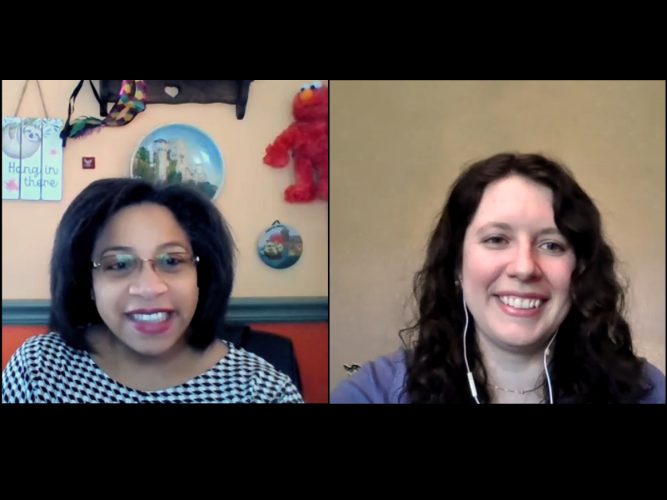
Social Chat: Celebrating Together
Celebrating all that we’ve accomplished together can help us feel thankful and proud.
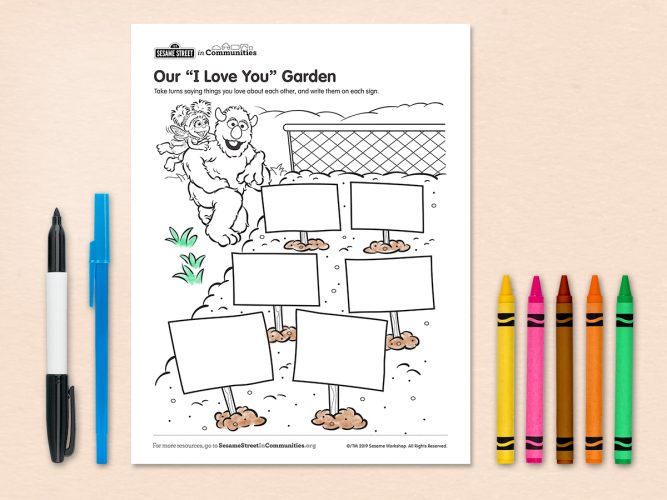
Gratitude Garden
Celebrating all that we’ve accomplished together can help us feel thankful and proud.

Showing Appreciation
Celebrating all that we’ve accomplished together can help us feel thankful and proud.
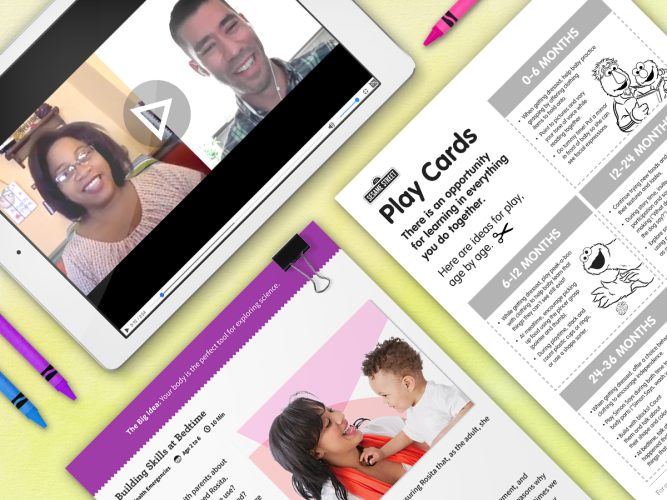
Learning Through Play: Tips & Tools for Providers
Children love to play—and as they do, we can help them explore the world around them and practice important skills.
Estos materiales están disponibles en Español. Deles un vistazo.
Age Group
Language
Resource Type
Activity Length
Sort By
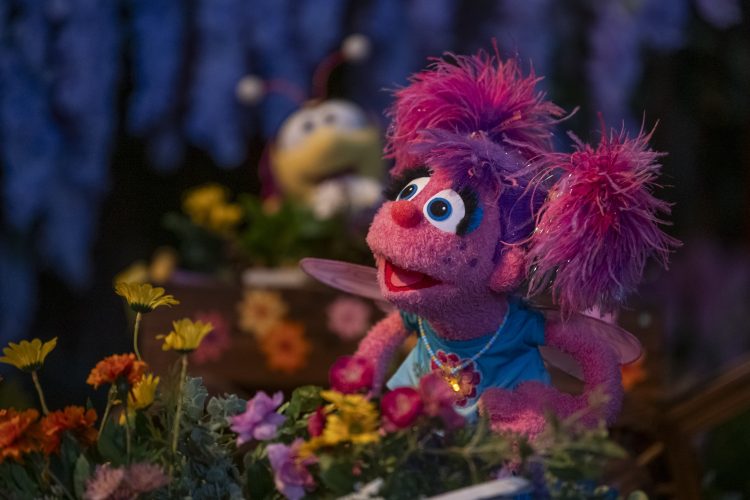
Watch and Play: Abby’s Magical Beasties
Watch this episode and explore ways to extend the learning at home.
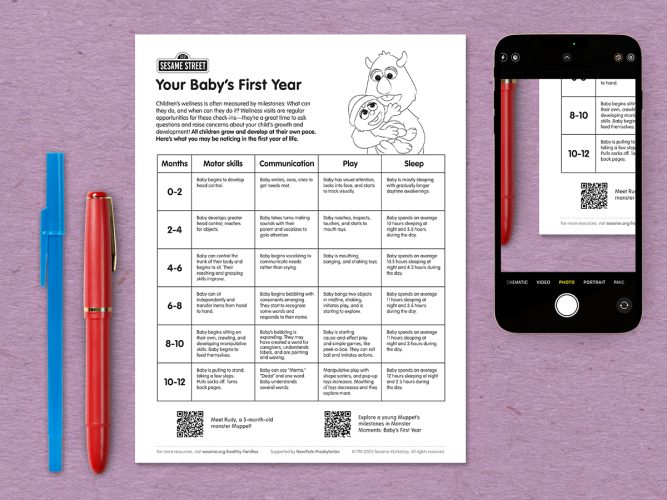
Milestones: Your Baby’s First Year
All children grow and develop at their own pace; use this chart to guide your expectations and observations so you can talk to your child’s pediatrician about questions or concerns.
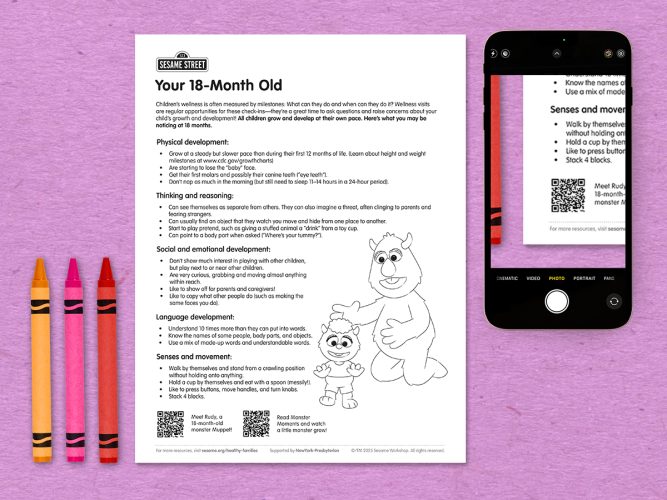
Milestones: Your 18-Month Old
All children grow and develop at their own pace; use this chart to guide your expectations and observations so you can talk to your child’s pediatrician about questions or concerns.
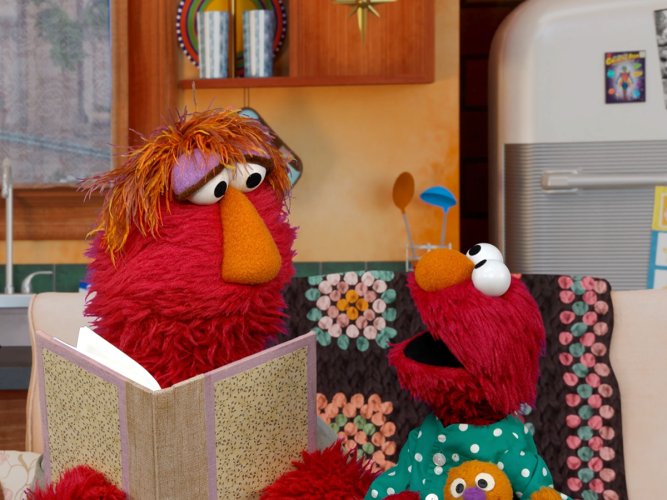
Go To Sleep, Elmo!
Handling a middle-of-the-night monster moment.
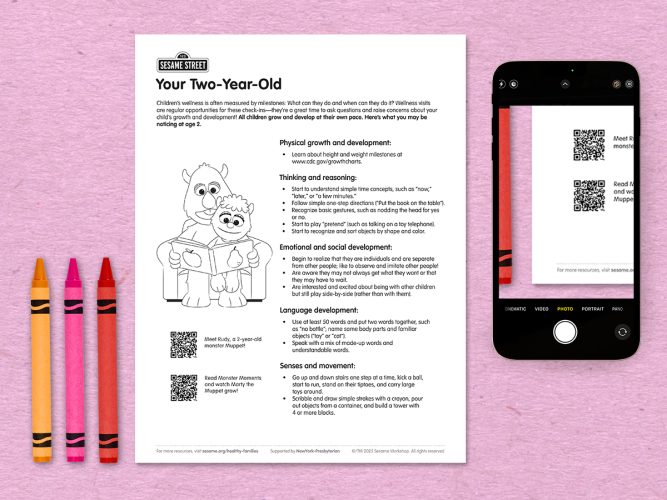
Milestones: Your Two-Year-Old
All children grow and develop at their own pace; use this chart to guide your expectations and observations so you can talk to your child’s pediatrician about questions or concerns.
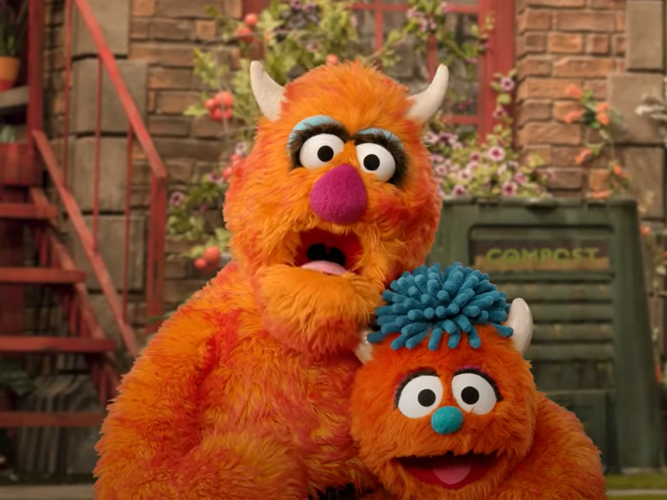
Monster Meltdown
Meltdowns happen… but they are somewhat predictable! As you try to handle them, curiosity and patience go a long way.
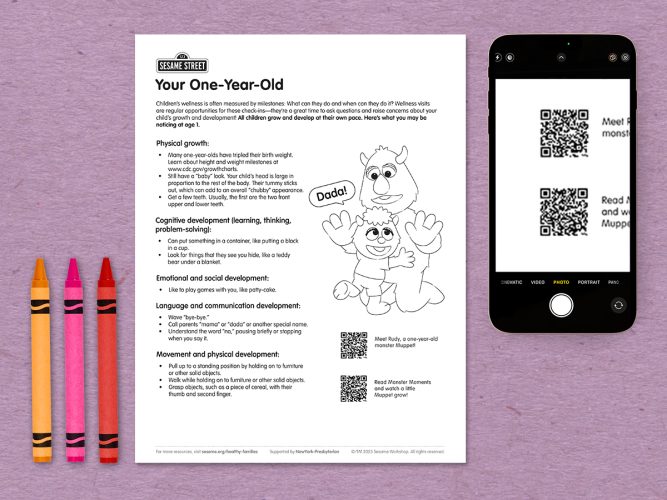
Milestones: Your One-Year-Old
All children grow and develop at their own pace; use this chart to guide your expectations and observations so you can talk to your child’s pediatrician about questions or concerns.
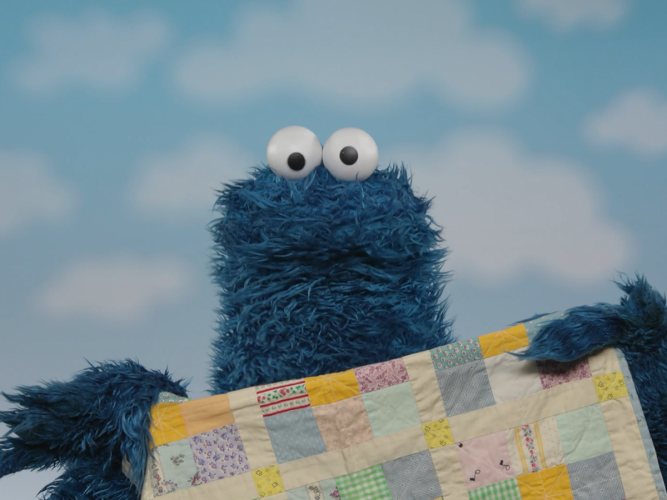
Cookie Monster’s Beach Day
When children are in the hospital, their imagination can become a valuable tool in soothing themselves.
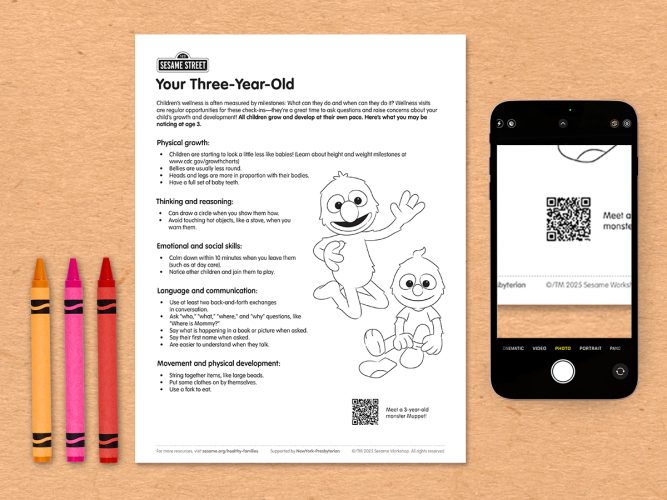
Milestones: Your Three-Year-Old
All children grow and develop at their own pace; use this chart to guide your expectations and observations so you can talk to your child’s pediatrician about questions or concerns.
Discover more resources for parents, caregivers, and providers.

Family Bonding
Everyone benefits from spending quality time with family. With little ones, that usually involves plenty of play!

Social Emotional Skills
Help kids build skills to develop healthy relationships, respect differences, and build the social behaviors and confidence they need.

School Readiness
Simple ways to lay the foundation for learning.

